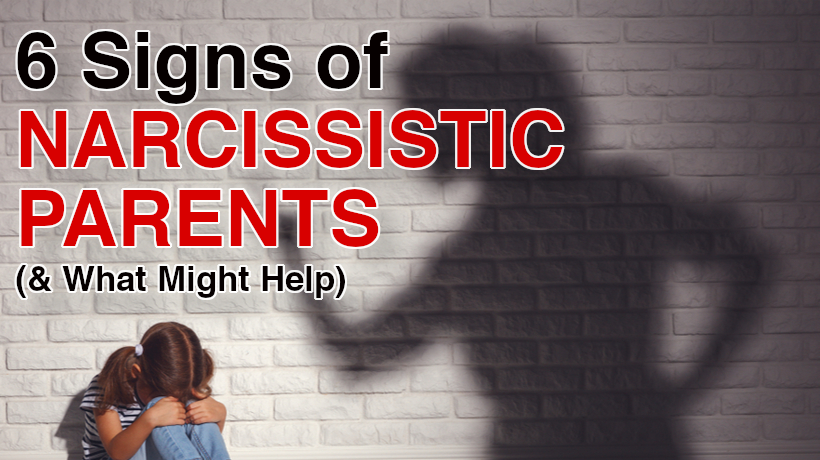You’ve heard of a narcissistic partner or even a narcissistic and toxic friend, but have you ever heard of a narcissistic parent? Narcissism, by definition, is characterized as a grandiose sense of self-importance, a lack of empathy for others, a need for excessive admiration, and the belief that one is unique and deserving of special treatment. While they may be hard to spot, here are a few signs that your parent may be a narcissist.
Conditional Love
Parents should love a child unconditionally — whether they do something exceptional or not. A parent who is narcissistic is interested in showing love for you only if you reflect her in a good light. This means, if you get a good grade or win a spelling bee, she will be proud and show your love because this reflects on how good her parenting is. She wants you to succeed, but only if it doesn’t outshine her. (Note: Daughters of a narcissistic parent may often be perfectionists as a result of wanting love from the parent!)
They love to control you
A narcissistic parent will often try to control you as a means of keeping you under their wing. They don’t want you to feel any type of independence so you can keep relying on them to feel the love that should be given to you unconditionally. As a result, they may even try to guilt-trip you to bring your spirits down. Amanda Robins, a psychotherapist, writes, “She may call you “selfish” because you don’t want to be her maid or chauffeur 24/7 Being afraid to say no to her because you fear her disapproval or anger is definitely not a good sign.”
They don’t take care of your needs
Often, narcissistic parents will not take an interest or care about your needs in life. As such, they focus the conversation mostly on themselves and what they are dealing with instead of tending to your needs. Kasey Stanton, Ph.D., a psychology professor at Western University in London, Ontario says “Someone who lacks empathy and perspective is likely going to have a much harder time, as they may struggle to recognize children’s needs and when those needs should be addressed.”
They expect you to follow all their demands
Narcissistic parents will try to make you follow all of their demands and rules. They will set forth rules and put them in place to try and make you seem “smaller than.” However, they themselves will not follow the rules because they have a high level of entitlement. Stanton tells Prevention magazine if the narcissistic does not get the attention and respect they are looking for, they might lash out at family members or their children (for not following the rules and “going against them.”)
Appearance means everything
Narcissists have a grandiose self-image. This may mean that they want their life to look picture perfect all the time. However, this isn’t possible or doable all the time. Robbins writes, “narcissists will be focussed on how things appear, and most importantly, how they appear to those whose opinion matters to them.” This means that they will try to impress other people (i.e. neighbors and friends) in order to look like the perfect mother or person.
Swinging emotions
A narcissistic parent may have swinging emotions. Robins writes, “Narcissists are often emotionally unstable, swinging between cold rage and collapsed fragility depending on environmental cues.” This may be a result of low self-esteem and the intense need for others to praise them for their self-image.
I think I have a narcissistic parent! What do I do?
Robins suggests talking to a friend or close loved on whom you trust about the narcissistic parent. She also notes that “Staying in contact with a narcissistic parent is a choice. If you decide that you want to stay in contact with your mother, you will need to accept that you may never receive the acknowledgment you long for in your relationship with her. You will need to validate your own feelings and accept the grieving process that accompanies a realization of her profound limitations.”
It is also important to find your true and authentic self after living in a narcissistic environment. What brings you the most joy? What are some of your hobbies and self-care activities? Most importantly, learn how to validate your own feelings without external approval.
Some books to read on reclaiming your authentic self:
In Her Power: Reclaiming Your Authentic Self by Helene Lerner
Reclaim Your Authentic Self by Amanda Robins
Will I Ever Be Good Enough? Healing the Daughters of Narcissistic Mothers by Karyl McBride.
Sources:



